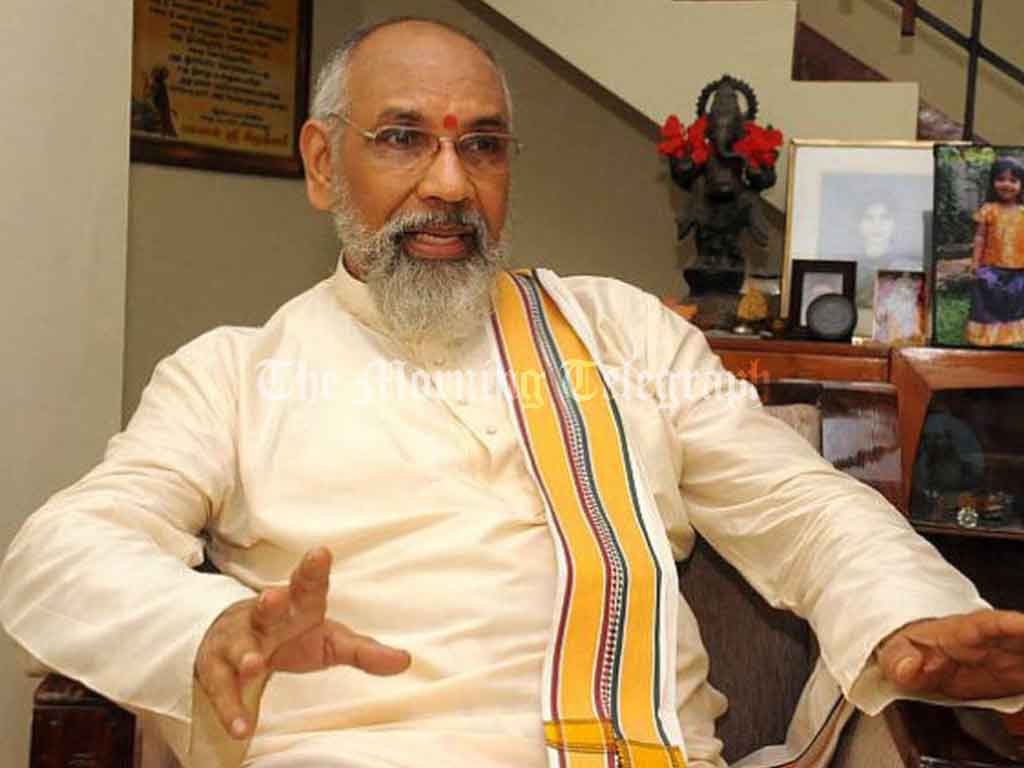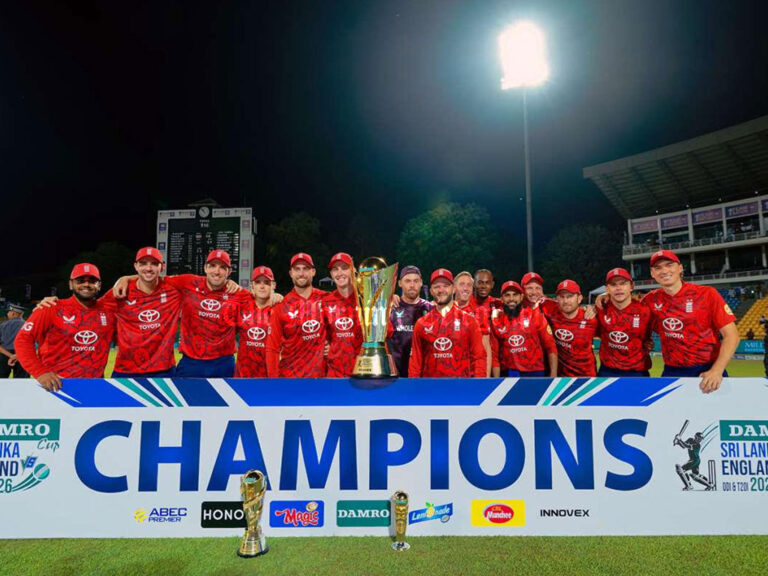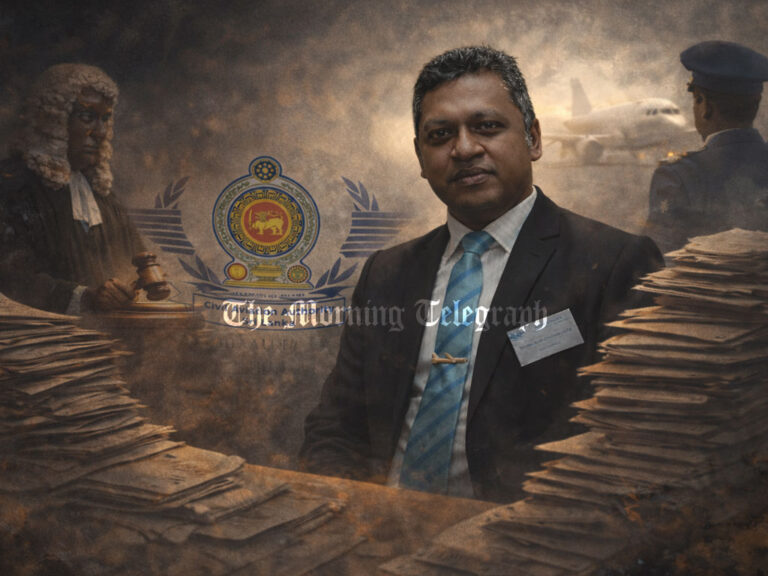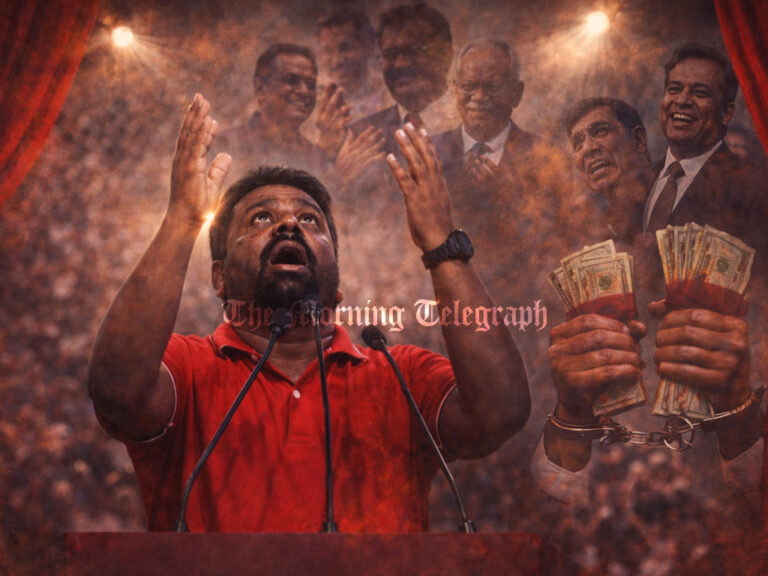
Former Chief Minister of the Northern Province, C.V. Wigneswaran, has announced plans to form a coalition of Tamil nationalist parties with the aim of compelling the Sri Lankan government to officially recognize the Northern and Eastern provinces as Tamil-speaking regions. This initiative comes despite the political shifts that have occurred in the region, including the decline of traditional Tamil nationalist parties in recent parliamentary elections.
Wigneswaran, who is also a former Member of Parliament and a President’s Counsel, explained that discussions are underway to create an alliance of Tamil nationalist parties, including those from different factions within the Tamil community. The purpose of this coalition is to push for the official recognition of the North and East as Tamil-majority provinces in Sri Lanka, a demand that has long been part of the Tamil nationalist movement.
Historically, the Tamil-speaking areas in the North and East have been centers of Tamil political power. However, recent election results have shown significant shifts in the political landscape. In the November parliamentary elections, the National People’s Power (NPP), a relatively new national political force, made significant inroads into these traditional Tamil strongholds, securing victories in several constituencies. This marked a departure from the dominance of traditional Tamil nationalist parties, which have long held sway in the region.
Wigneswaran acknowledged the changes in voter behavior, noting that many voters who previously supported two key Tamil political groups in the North had shifted their allegiance to the NPP in the recent election. He also pointed out that many young voters, particularly first-time voters, had chosen to support the NPP over the established Tamil parties. This shift, according to Wigneswaran, is indicative of a broader desire for a political platform that addresses issues beyond ethnic identity, including economic development, social welfare, and governance.
Despite this shift in support, Wigneswaran emphasized that the support for other Tamil political parties had not decreased significantly, suggesting that while there is a growing interest in national politics, the demand for Tamil nationalist representation remains strong. The formation of the new alliance, he said, is intended to unify Tamil nationalist forces and ensure that the community’s demands are heard at the national level.
While discussing the future direction of Tamil politics, Wigneswaran also acknowledged recent positive steps taken by the Sri Lankan government, including the decision to allow the people of the North to commemorate their family members who lost their lives during the civil war. This move, he stated, has been widely appreciated by the Tamil people and is seen as a sign of reconciliation and recognition of the community’s suffering.
Wigneswaran expressed cautious optimism about these gestures but maintained that the Tamil community’s demands for political and economic rights must not be sidelined. He noted that the new Tamil nationalist alliance would continue to press for recognition of Tamil as a national language and for the North and East to be formally recognized as Tamil-speaking regions. This, he said, would be an important step toward addressing the historical grievances of the Tamil community, particularly in the aftermath of the civil war.
The shift in voting patterns in the Northern and Eastern provinces reflects a broader trend in Sri Lankan politics, where voters are increasingly prioritizing issues such as economic development, education, healthcare, and social justice over ethnic and regional considerations. Wigneswaran acknowledged this trend but argued that the Tamil community’s demand for self-determination and greater autonomy in the North and East should remain a central focus of political efforts.
Furthermore, the recent success of national parties like the NPP in Tamil-majority regions has raised questions about the future of ethnic-based politics in Sri Lanka. The increasing support for parties that focus on broader national issues, rather than ethnic or regional identities, suggests that many voters in the North and East are looking for a more inclusive, development-oriented political discourse. However, Tamil nationalist leaders like Wigneswaran maintain that the community’s unique historical, cultural, and linguistic identity must be acknowledged and protected within Sri Lanka’s political framework.
The formation of the proposed Tamil nationalist alliance is, in part, a response to these changing political dynamics. By uniting the various Tamil nationalist factions under a single banner, Wigneswaran hopes to strengthen the Tamil voice in Sri Lanka’s political dialogue and ensure that the community’s rights and aspirations are not overlooked in the pursuit of national unity. This alliance, while focused on the recognition of Tamil-speaking regions, will also have to navigate the evolving political landscape of the North and East, where the rise of national parties and shifting voter allegiances may shape the future of Tamil politics in Sri Lanka.
In conclusion, while Wigneswaran’s proposed alliance seeks to address longstanding demands for Tamil recognition and self-determination, it also reflects the changing nature of Tamil politics, which is increasingly shaped by broader national concerns. The outcome of these efforts will depend on the ability of Tamil nationalist leaders to balance ethnic and regional identity with the broader goals of social, political, and economic development for the Tamil-speaking people of Sri Lanka.




